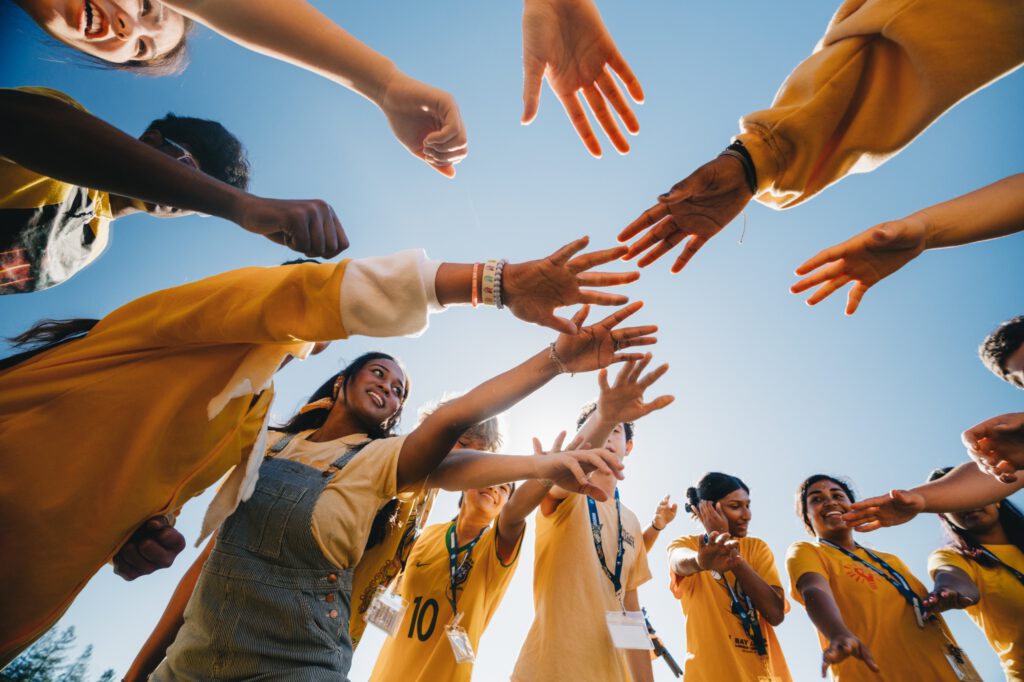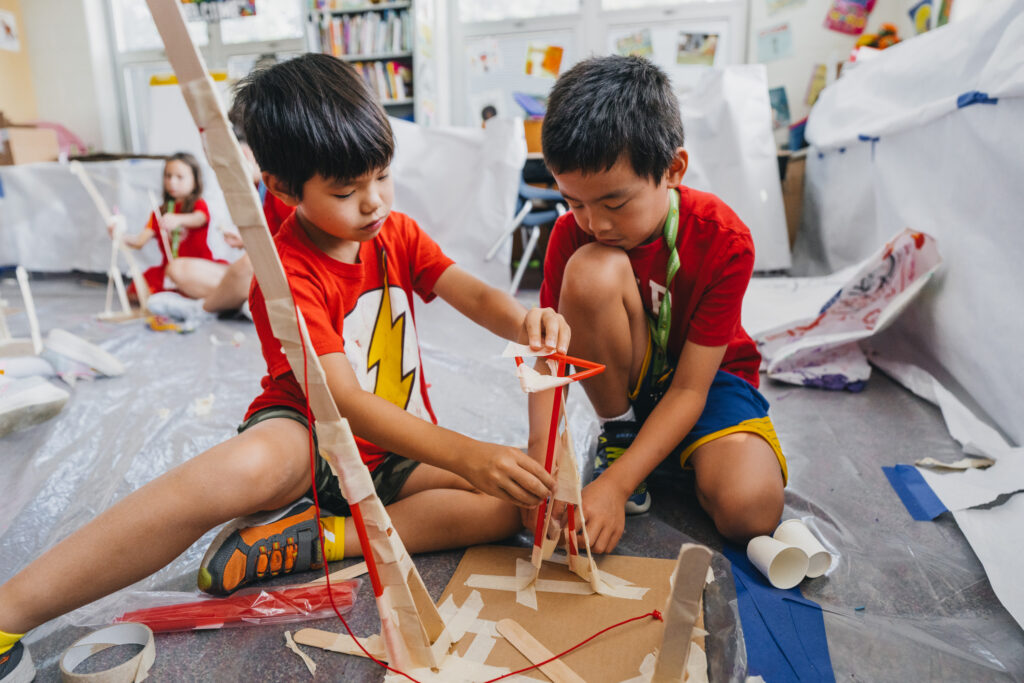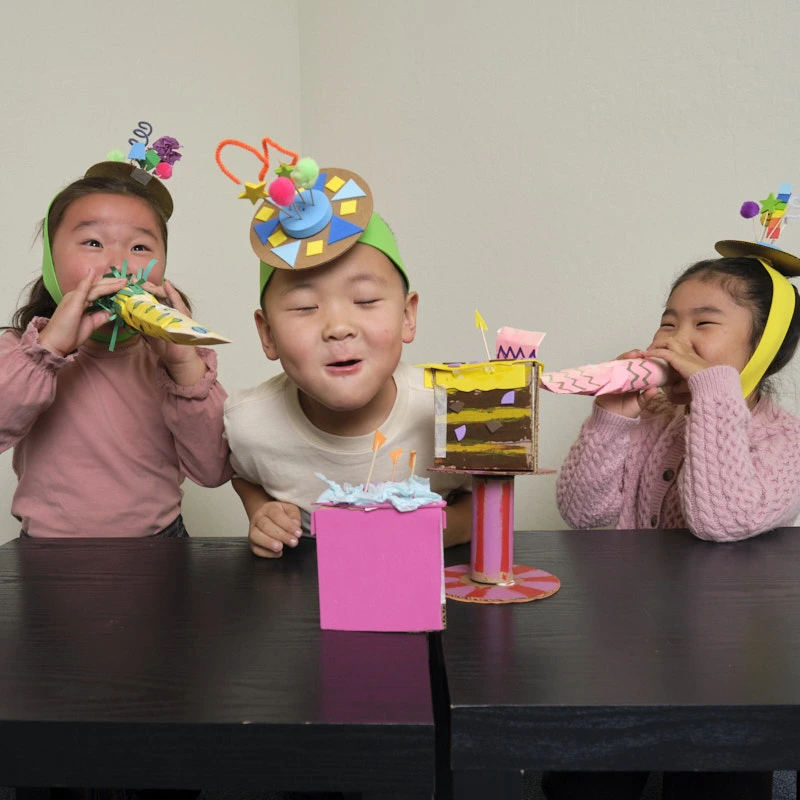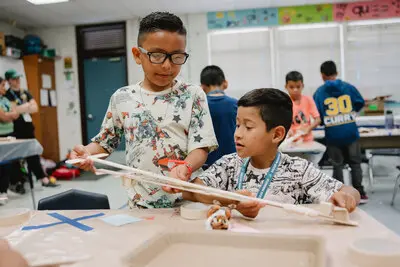Camp fills kids’ summers with excitement and fun, and it helps them develop venerable qualities such as compassion and courage. Through cooperative play and engaging activities, campers can hone their social skills and broaden their budding perspectives on life.
There are endless benefits of summer camp for kids. In fact, it would take a whole summer to list them all off. Like school, however, it does separate kids from the familiarity of family and home—even if it’s just for the day.
Hence, they need to reach a certain level of maturity before attending.
So, what is the best age to go to summer camp? To help you decide if this is the right summer to enroll your kid in a summer day camp, we’re unpacking key readiness markers such as age, emotional maturity and interests.
What’s the Optimal Age to Begin Camp?
Generally, the summer camp age range encompasses all school-aged children. At Camp Galileo, we offer camp activities for children grades K to 7. Considering the interests and abilities of different ages, camps are generally divided by grade and age group.
For instance, camps may have separate programs catered to:
- Kindergarten to second grade
- Grades three and four
- Grades five through seven
So, oftentimes, four or five might be the ideal time to consider sending your kid to camp. Age, however, isn’t necessarily the best determinant of readiness—and it’s certainly not the only factor to consider when deciding whether or not to enroll your child.
Consider Your Child’s Emotional Maturity
Attending camp needs a similar level of emotional maturity as school. Both require kids to leave their families for extended stretches and place their trust in new caretakers. Unlike in more rigorously-structured classrooms, however, some children may feel more comfortable staying the day at a camp.
Play helps alleviate the feelings of fear and anxiety children feel over being separated from their parents. Thus, kids may feel more at ease in an engaging, playful environment versus an education-focused school.
That’s not to say summer camp isn’t intellectually stimulating, however. In fact, children actively learn when they’re at play without even realizing it. Whether it’s cooperation during a relay race or technical skills in guided Science, Technology, Engineering, Art and Mathematics (STEAM) activities, play can be a child’s most powerful teacher.
Hence, camp is exciting and beneficial for kids’ intellectual and personal development—and they may be ready for it even earlier than school!
The Benefits of Sending Young Children to Summer Camp
When young children are gearing up to go to kindergarten, they’re at a pivotal stage in which they’re laying the groundwork for key life skills. Some of the important personal characteristics that are honed in early childhood include:
- Our ability to read and interpret social cues
- Our capacity to adjust to new social environments
- Behavioral patterns
- Intellectual aptitude
Summer programs help kids develop these capabilities in a positive, nurturing setting. They provide engaging social scenarios in which children can learn to interact with their peers through discovery and play.
Camp encourages children to be confident and step outside their social comfort zone—an important step toward developing an independent mindset and being less reliant on caregivers. It also provides opportunities for key social relationships and, oftentimes, leads to the first friendships that children develop outside of their families.
Summer Camp Bolsters Social Skills and Independence in Pre-Teens
As children develop and mature into adolescence, they’ll face a host of new situations. When faced with these challenges, kids learn courage, social aptitude and independent thinking. Summer camps can help budding minds develop these attributes, and have been linked to noted improvements in adolescent children’s:
- Risk assessment
- Prosocial behavior
- Physical and mental health
- Social and emotional development
- Academic and personal enrichment
Camp makes socializing easy by providing an environment where children can bond over common interests. Whether it’s crafting catapults, drafting designs or pretend play, shared leisure activities are integral in fostering cooperative abilities and reducing social withdrawal during adolescence.
Another key concern to think about when considering whether or not your kid is ready for camp (especially during their pre-teen and teen years) is your child’s interests. Talk with them, ask what type of programs and fun activities they prefer and find something that’s the right fit for you and your camper.
Camp Instills Confidence in Teenagers and Prepares Them For Their Futures
Once children reach their teenage years, they’ll soon be on the track to deciding on a career path and planning for their future. While camp is a much-deserved break from having to deal with these types of pressures, campers are also uniquely prepared for these challenges as they’ll have:
- Been exposed to a wide range of activities and disciplines
- Learned what interests them
- Had practical experience in a range of skills and subjects that they’ll encounter in high school and beyond
- Improved confidence knowing they’re ready to take on the tasks and challenges that lay ahead of them
Whether it’s painting, storytelling or bot building, campers will have an early sense of direction for the type of future they want to pursue.
These young innovators and leaders have already been prepared to work effectively on teams, solve problems independently and set achievable goals for themselves. Thus, they’re uniquely equipped to avoid caving to social pressures and carve their own path in life. We even have a Counselour in Training program to further develop these skills as your becomes a young adult.
Create Magical Summer Memories at Camp Galileo
There’s simply no substitute for camp when it comes to a thrilling, meaningful summer experience that helps kids mature and grow. To guarantee a space for your camper this upcoming summer, enroll them in Camp Galileo today.
Our celebrated program focuses on fostering an innovative mindset in children so they can put their skills to work making the world a better place. Through creative projects, STEAM exploration, collaboration and play, campers cultivate their confidence, resilience and problem-solving skills.
Enroll today for unforgettable memories at one of our locations in the SF Bay Area, Southern California (Newport Beach, LA, OC and SD), Chicago, Denver & Seattle. Foster an innovative mindset, combine that with all the fun of a traditional camp, and you’ve got a wholly unforgettable, transformative summer waiting at Camp Galileo!
Explore our locations across California, Chicagoland, Seattle, and Colorado! Located in the California Bay Area? Be sure to check out our Berkeley summer camp or our Lafayettte summer camp. We have Camp Galileo locations across many communities. Explore our Camp Finder to find the locations nearest you.
Sources:
Administration for Children and Families. School-Age Child Care and Camp Programs. https://childcare.gov/
National Library of Medicine. THE IMPORTANCE OF PLAY DURING HOSPITALIZATION OF CHILDREN. https://www.ncbi.nlm.nih.gov/
National Library of Medicine. Children’s descriptions of playing and learning as related processes. https://www.ncbi.nlm.nih.gov/
National Library of Medicine. Development of Social Skills in Kindergarten: A Latent Class Growth Modeling Approach. https://www.ncbi.nlm.nih.gov/
National Library of Medicine. Shaping Summertime Experiences: Opportunities to Promote Healthy Development and Well-Being for Children and Youth. https://www.ncbi.nlm.nih.gov/
National Library of Medicine. Peer Play. https://www.ncbi.nlm.nih.gov/
Harvard Graduate School of Education. Lessons from Camp. https://www.gse.harvard.edu/




